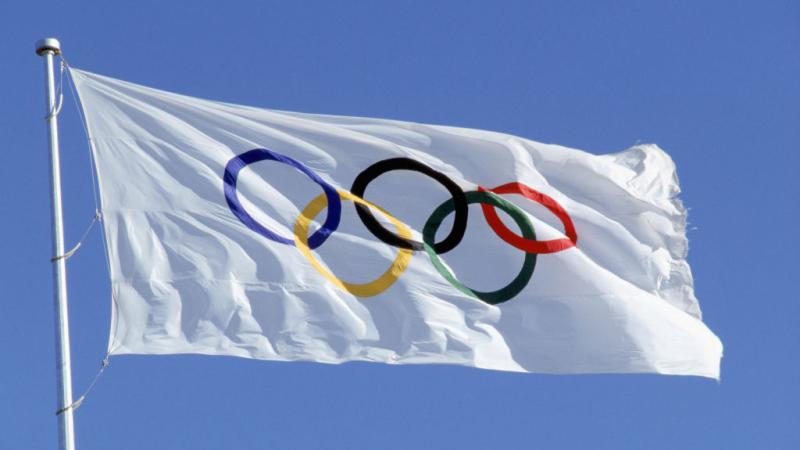The next Lia Thomas? Male dominates girls' sports after appeals court blocks West Virginia law
Transgender student Becky Pepper-Jackson got injunction by claiming to finish "near the back of the pack" in female sports, then beat 100 girls and went to championship, state claims.
Becky Pepper-Jackson went on a tear in girls' track-and-field competition in West Virginia in the recently concluded spring season. It may cost the 13-year-old biological male student the opportunity to compete against females in the upcoming season.
Attorney General Patrick Morrissey and Alliance Defending Freedom attorneys asked the 4th U.S. Circuit Court of Appeals Tuesday to dissolve its unexplained reinstatement of an injunction against the state's 2021 law banning "students of the male sex" from participating in female-designated athletic teams or sports "based upon competitive skill" or contact sports.
Pepper-Jackson has "beaten over 100 different girls, competitively displaced them over 280 times, consistently ranked in the top 10 of track-and-field events, and denied multiple girls spots in the conference championship" just since the reinstatement Feb. 22, the motion to dissolve reads. "The displaced girls will never be able to recover those opportunities."
This counters what Pepper-Jackson's American Civil Liberties Union lawyers repeatedly told the appeals court, according to Morrissey and ADF, which intervened in the case on behalf of Lainey Armistead, who played soccer for West Virginia State University when the suit was filed.
In its Feb. 7 motion for a stay pending appeal, the ACLU mocked Morrissey and ADF for "continu[ing] to identify absolutely no one in West Virginia who will suffer cognizable harm" if Pepper-Jackson competes in women's sports. It claimed there was "exactly zero basis to think that any of defendants’ hypotheticals will arise while this case is on appeal."
Ten days later, in its motion to uphold the injunction, the ACLU said the state's arguments are based on "sheer conjecture and abstraction" because it has yet to identify "a single person" displaced by Pepper-Jackson during the year and a half the student competed in girls' sports under the injunction.
Pepper-Jackson – identified as "B.P.J." in court but by name in ACLU case materials and sympathetic media profiles – has "regularly finish[ed] near the back of the pack" in competition "for three, going on four, seasons," the ACLU said in its opening merits brief March 27.
The student has since surged to the front of the pack, "throwing farther than ever before –and improving much faster – than biologically female classmates" in discus and shotput and one of three top finishers in Bridgeport who went on to conference championships, Morrissey and ADF wrote. Pepper-Jackson then scored fourth in discus and sixth in shot put at the championship.
Twenty-two states have laws that prohibit scholastic athletic competition based on gender identity at some levels, according to Movement Advancement Project, a think tank that says it promotes LGBT equality. The Associated Press and New York Times cite its research.
Idaho's was the first, in 2020, prompting an ACLU challenge led by its lawyer Chase Strangio, who advocates banning books that question gender ideology. The law initially looked like it might be spared because of uncertainty over whether transgender plaintiff Lindsay Hecox still had legal standing while on indefinite hiatus from Boise State University.
After further development of the factual record in district court, the 9th U.S. Circuit Court of Appeals concluded Jan. 30 that Hecox had taken several concrete steps to re-enroll and try out for women's sports and could obtain a "waiver of eligibility" from NCAA course-hour requirements, making the case live.
The motion to dissolve the 4th Circuit injunction includes several charts of athletic results for 2023 competitions and identifies female athletes by their initials and schools who lost spots to Pepper-Jackson. The transgender student improved personal bests by much larger percentages than the Bridgeport top females and other seventh-graders.
With the fall cross-country season starting in a few weeks, the rising eighth-grader is likely to continue showing "unusual improvement and advancement in athletics" against female competitors, Morrissey and ADF said.
The case has followed an unusual path since U.S. District Judge Joseph Goodwin issued an injunction nearly two years ago. He implied the state law was based on "fear of the unknown and discomfort with the unfamiliar" and saw "scant evidence" it targeted "any problem at all."
The President Clinton nominee changed his tune after reading "thousands of pages" filed by the parties, concluding in a Jan. 5 order dissolving the injunction that the state's sex-based definitions of "girl" and "boy" were "constitutionally permissible."
Goodwin agreed that sex "dictates physical characteristics that are relevant to athletics" even when a student takes puberty blockers rather than cross-sex hormones to limit male competitive advantage, as Pepper-Jackson did, in part because "a person either has male sex chromosomes or female sex chromosomes."
The 4th Circuit didn't explain why it reinstated the injunction the following month, and the Supreme Court refused to get involved in April, with Justices Samuel Alito and Clarence Thomas dissenting.
The reinstatement prompted a wide array of briefs from outside groups, including lawyers for "78 female athletes, coaches, sports officials, and women athletes' family members" supporting the law, more than a dozen of them Olympians and even more forced to compete against males.
They include tennis great Martina Navratilova, WNBA champion Val Whiting and Riley Gaines, who tied biologically male swimmer Lia Thomas at an NCAA championship. "Based on their biological sex, they are at risk of being pushed aside in law and in life in a permanently damaging and irreversible way," the brief says.
While Pepper-Jackson often asserted the law did not match the student's "individual circumstances" – which is not required by "ordinary equal-protection principles" – the motion to dissolve argues "[t]hose circumstances now cut against" the argument for the injunction.
"B.P.J. is consistently finishing near the top of the pack" despite the hormones the student takes to purportedly reduce male athletic advantage, the filing states.
This "statistically anomalous performance leap" shows that supposedly mitigating circumstances for transgender athletes "can evolve quickly" and that "any standard focused on gender-identity and perceived-competitive equality" is impractical if not impossible to administer.
The ACLU did not respond to requests for its response to the motion and arguments.
The Facts Inside Our Reporter's Notebook
Videos
Links
- unexplained reinstatement of an injunction
- Mountain State's 2021 law
- motion to dissolve
- Feb. 7 motion for a stay pending appeal
- motion to uphold
- ACLU case materials
- sympathetic
- media profiles
- opening merits brief March 27
- Movement Advancement Project
- Associated Press
- New York Times
- Chase Strangio, who advocates banning books
- uncertainty over whether transgender plaintiff Lindsay Hecox still had legal standing
- 9th U.S. Circuit Court of Appeals concluded Jan. 30
- injunction nearly two years ago
- Jan. 5 order dissolving the injunction
- Supreme Court refused to get involved
- lawyers for "78 female athletes















